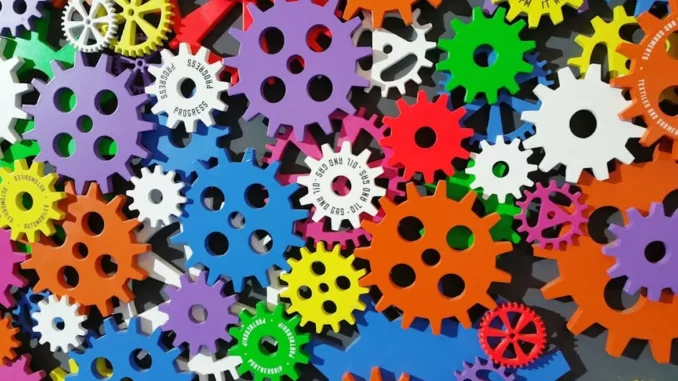
In an era where technology and medicine increasingly intersect to create groundbreaking advancements, the Mehta Family Centre for Engineering in Medicine at the Indian Institute of Technology (IIT) Kanpur recently served as the venue for an influential workshop titled ‘Innovations in NeuroTech’. This significant event brought together an eclectic mix of experts from the domains of clinical neuroscience, computational neuroscience, and neuroengineering, facilitating a dynamic platform for interdisciplinary collaboration. Spearheaded by Prof. Arjun Ramakrishnan, the workshop was underpinned by a generous seed grant from IIT Kanpur and Rice University, with additional support from the Jay Pullur Neuroscience Initiative and the Neuroscience Centre of Excellence.
The event commenced with an inspiring welcome address from Prof. Amitabha Bandyopadhyay, who heads the Department of Biological Sciences and Bioengineering at IIT Kanpur. Prof. Bandyopadhyay articulated the transformative potential of indigenous medical technology in the rapidly evolving field of neurotechnology. He highlighted IIT Kanpur’s pioneering efforts in this domain, particularly through initiatives such as the Gangwal School of Medical Science and Technology and the Mehta Family Centre for Engineering in Medicine, underlining the institution’s commitment to advancing medical science and technology.
Central to the workshop’s agenda were discussions on cutting-edge advancements in neurotechnology, focusing on implantable brain devices, closed-loop neuromodulation systems, and brain-machine interfaces. These discussions were enriched by an emphasis on the development of cost-effective and scalable neurotechnologies, particularly those adapted for low-resource settings, which echoed the workshop’s dedication to accessibility and global impact. The utilisation of computational models was highlighted for their pivotal role in optimising device design, refining neuromodulation strategies, and improving clinical outcomes, signifying a leap forward in the integration of technology with neurological science.
The workshop featured two thematic sessions, each delving into critical areas of neurotechnology. The first session, titled Innovations in Brain Monitoring, Implants, and Epilepsy Care, featured presentations from distinguished experts such as Dr. Harilal from AIMS, Kochi, and Dr. Nilesh Kurwale from DMH, Pune. They explored invasive neural monitoring techniques for epilepsy care in India, shedding light on the complexities and significant progress achieved in this high-volume area of surgical intervention. Contributions from Prof. John Seymour of UTHealth, who shared insights from the Rice-IIT Kanpur collaboration, focused on computational methods to optimise electrode placement for enhanced surgical outcomes. Adding to the discourse, Mr. Maroun Farah, CEO of Sensomedical, introduced cost-effective and high-quality stereo EEG technology designed to improve accessibility, while Prof. Nitin Tandon presented AI-based models that analyse stereo EEG data to interpret neural concepts essential for language processing in epilepsy patients.
The second session, Advances in Neuromodulation, showcased innovative techniques in this burgeoning field. Prof. Behnaam Aazhang presented research on how biomarkers derived from EEG and ECG can infer glymphatic flow, with radiofrequency stimulation shown to enhance it. Prof. Pragathi Priyadarshini linked vagal tone with electrogastrogram and EEG signals, offering new insights into physiological processes, while Prof. Nikunj Bhagat introduced passive brain-computer interfaces for closed-loop systems. Equally noteworthy, Prof. Venkatasubramanian Ganesan unveiled non-invasive stimulation technologies, including custom-designed transcranial direct current stimulation (tDCS) devices, aimed at alleviating symptoms of treatment-resistant schizophrenia.
Culminating the workshop was a roundtable discussion led by Mr. Kaustubh Despande, CEO of Eywa Neuro, alongside Prof. Venkatasubramanian Ganesan. This session was instrumental in integrating clinical, computational, and engineering expertise to address critical challenges in neurotechnology. Participants identified paths for collaboration that could propel the field forward and fortify India’s standing as a hub for transformative neurotechnological solutions.
The workshop drew over 100 attendees, including PhD students, and featured 12 poster presentations that spanned topics of neural recording and stimulation across various species—from flies to rodents to humans. By fostering a vibrant dialogue and encouraging innovative thought, the workshop established a solid foundation for future research and collaboration. It underscored India’s burgeoning capacity to emerge as a global leader in transformative neurotechnology solutions, harnessing the synergy of academic excellence and technological innovation.
The Indian Institute of Technology Kanpur, since its establishment in 1959, has been a beacon of excellence in science and engineering education, recognised as an Institute of National Importance by the Government of India. Its sprawling 1,050-acre campus houses 19 departments, 26 centres, three interdisciplinary programmes, and two specialised schools across diverse disciplines, supported by over 590 full-time faculty members and more than 9,500 students. IIT Kanpur continues to lead in fostering innovation and academic rigour, contributing significantly to research and development on both national and international stages. For those seeking further information, the institute’s extensive resources can be explored at www.iitk.ac.in.


Be the first to comment